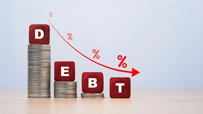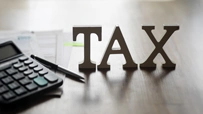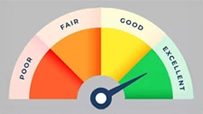Recurring Deposits: Why it Should Be a Part of Your Investment Portfolio
September 03, 2025

In today’s fast-paced financial world, it’s easy to get lost in the maze of investment options. From stocks to mutual funds, real estate to gold, each has its own set of advantages and risks. However, one tried-and-tested option that has stood the test of time is the Recurring Deposit (RD). If you’re looking for a stable, low-risk investment avenue with guaranteed returns, RDs can be an excellent choice to diversify and strengthen your investment strategy. In this blog, we’ll explore how to seamlessly integrate Recurring Deposits into your broader financial plan, along with answers to the most frequently asked questions.
What is a Recurring Deposit (RD)?
A Recurring Deposit is a popular fixed-income instrument offered by banks and financial institutions, allowing you to invest a fixed amount regularly (monthly) for a specific tenure. At the end of the tenure, you receive the principal along with interest accrued over the period. The fixed interest rate makes RDs a low-risk investment option for conservative investors looking for predictable returns.
Why Should You Consider Recurring Deposits in Your Investment Strategy?
Integrating RDs into your investment strategy can be highly beneficial. Here's why:
1. Stable and Guaranteed Returns
Unlike stocks or mutual funds, where returns can be volatile, Recurring Deposits offer a fixed rate of return throughout the tenure, making them a safe and predictable option for risk-averse investors.
2. Compulsory Saving Mechanism
The mandatory monthly contribution to an RD instills a disciplined saving habit. It forces you to save regularly, which is especially helpful for those who tend to spend more than they save.
3. Diversification
If you already have investments in riskier assets like stocks or mutual funds, RDs can balance out the risk. Since RDs are not affected by market volatility, they provide stability to your portfolio.
4. Flexibility
RDs offer flexibility in terms of tenure, which can range from 6 months to 10 years. This makes it easier for investors to match the investment with their financial goals and timelines.
5. Safe for Beginners
If you're new to investing and don’t want to dive into high-risk markets just yet, RDs are an excellent starting point. They provide an entry-level investment with a predictable outcome.
How to Integrate Recurring Deposits into Your Investment Strategy?
1. Assess Your Financial Goals
Before integrating RDs into your strategy, it’s important to evaluate your financial goals. Are you saving for a short-term goal like a vacation or a long-term goal like retirement? Recurring Deposits can be a great way to achieve both, but your approach will differ. For short-term goals, choose shorter tenures; for long-term goals, go for longer tenures with higher contributions.
2. Determine the Right Amount to Invest
To integrate RDs effectively, it’s crucial to decide how much of your monthly budget you can allocate towards them. A good rule of thumb is to invest at least 10-20% of your monthly income into RDs, especially if you have other high-risk investments.
3. Spread Your Investments Across Tenures
Don’t put all your funds into RDs with the same maturity date. By spreading your RDs across different tenures, you can ensure liquidity at regular intervals. This strategy can help manage cash flow while maximizing returns.
4. Consider Combining with Other Low-Risk Instruments
While RDs offer security, it’s still beneficial to balance them with other low-risk instruments such as Fixed Deposits (FDs) or Public Provident Fund (PPF). This combination ensures both liquidity and higher returns over time.
5. Monitor and Adjust Your RDs
As your financial situation changes, so should your investment strategy. If your income increases, you can increase your RD contribution to take advantage of compounding returns. Conversely, if you face a cash crunch, you can adjust or pause your contributions.
Benefits of Adding Recurring Deposits to Your Portfolio
- Capital Preservation: You’re assured of getting back at least the amount you invested along with the promised interest.
- Reduced Risk Exposure: RDs are unaffected by market fluctuations, unlike equity-based investments.
- Easy Accessibility: RDs are offered by almost all banks and financial institutions, making them accessible to anyone.
Final Thoughts
Incorporating Recurring Deposits into your investment strategy can significantly enhance your financial stability. Whether you’re a seasoned investor or a beginner, RDs offer a unique combination of safety, discipline, and fixed returns that make them an excellent option for conservative investors. By integrating RDs with your other investment options, you can build a well-rounded and secure portfolio that meets your long-term and short-term financial goals.
Start small, dream big! Invest in Ujjivan Small Finance Bank’s Recurring Deposit and enjoy higher interest rates! Save for your long- and short-term goals with our RD and live a stress-free financial life. Start investing with just ₹100!
Disclaimer:
The contents herein are only for informational purposes and generic in nature. The content does not amount to an offer, invitation or solicitation of any kind to buy or sell, and are not intended to create any legal rights or obligations. This information is subject to updation, completion, amendment and verification without notice. The contents herein are also subject to other product-specific terms and conditions, as well as any applicable third-party terms and conditions, for which Ujjivan Small Finance Bank assumes no responsibility or liability.
Nothing contained herein is intended to constitute financial, investment, legal, tax, or any other professional advice or opinion. Please obtain professional advice before making investment or any other decisions. Any investment decisions that may be made by the you shall be at your own sole discretion, independent analysis and evaluation of the risks involved. The use of any information set out in this document is entirely at the user’s own risk. Ujjivan Small Finance Bank Limited makes no representation or warranty, express or implied, as to the accuracy and completeness for any information herein. The Bank disclaims any and all liability for any loss or damage (direct, indirect, consequential, or otherwise) incurred by you due to use of or due to investment, product application decisions made by you on the basis of the contents herein. While the information is prepared in good faith from sources deemed reliable (including public sources), the Bank disclaims any liability with respect to accuracy of information or any error or omission or any loss or damage incurred by anyone in reliance on the contents herein, in any manner whatsoever.
To know more about Ujjivan Small Finance Bank Products Visit:"https://www.ujjivansfb.in"
All intellectual property rights, including copyrights, trademarks, and other proprietary rights, pertaining to the content and materials displayed herein, belong
to Ujjivan Small Finance Bank Limited or its licensors. Unauthorised use or misuse of any intellectual property, or other content displayed herein is strictly prohibited and the same is not intended for distribution to, or use by, any person in any jurisdiction where such distribution or use would (by reason of that person’s nationality, residence or otherwise) be contrary to law or registration or would subject Ujjivan Small Finance Bank Limited or its affiliates to any licensing or registration requirements.
FAQs
1. What is the minimum amount required to open a Recurring Deposit?
With Ujjivan, you can open an RD with a minimum deposit of ₹100.
2. Are Recurring Deposits risk-free?
Yes, RDs are considered low-risk as they offer fixed returns and are not impacted by market fluctuations. Additionally, investments up to ₹5 lakh is insured under DICGC per depositor, per account.
3. Can I prematurely close my Recurring Deposit?
Yes, you can close your RD before maturity, but you may incur a penalty and receive a reduced interest rate.
4. Are the interest earnings from Recurring Deposits taxable?
Yes, the interest earned on RDs is taxable as per your income tax slab.
5. What happens if I miss a monthly deposit?
If you miss a payment, you would lose out on the interest. Also, multiple missed payments can lead to account deactivation or closure. Link your RD to your savings account to avoid missed payments.
Latest Blogs

APK Fraud: How One Wrong Download Could Empty Your Bank Account
May 13, 2025
Picture this. You’re sipping your evening tea when your phone rings.

Gold Loan LTV Ratio Explained (75% to 85%): What It Means for Borrowers
March 20, 2025
In June 2025, the Reserve Bank of India (RBI) introduced a significant relaxation for gold loan borrowers: the maximum Loan-to-Value (LTV) ratio for loans below ₹2.5 lakh was raised to 85%, up from the long-standing cap of 75%. Loans between ₹2.5 lakh and ₹5 lakh can now go up to 80%, while loans above ₹5 lakh continue under the 75% ceiling.

Good Debt vs Bad Debt: Learn the Difference
August 13, 2025
Every month, millions of Indians wait for the familiar debit alert, an EMI deducted from their account.

Got a Tax Refund? 5 Smart Ways to Put Your 2025 Refund to Work
August 13, 2025
For many taxpayers, there’s a unique sense of relief when a tax refund arrives.

Credit Score Not Improving? 5 Mistakes You Might Be Making
August 13, 2025
For most of us, a credit score feels like a silent judge sitting in the background of our financial lives.





